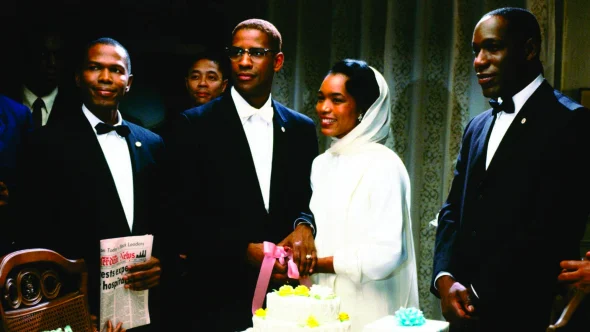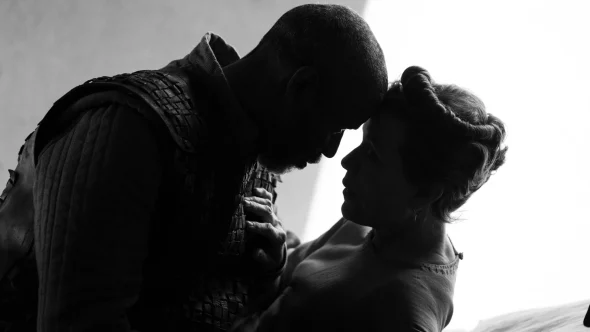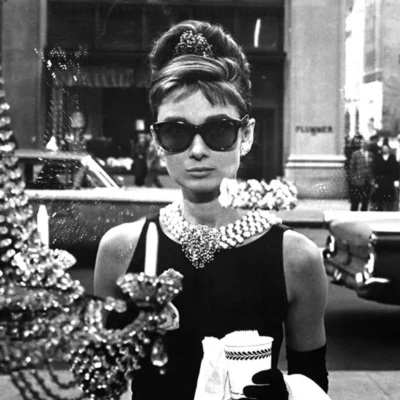
One of the greatest and most respected American actors of his or any generation, Denzel Washington has been a giant in the film industry for decades.
Born in Mount Vernon, New York in 1954, Washington attended Fordham University and earned a BA in Drama and Journalism in 1977. He then studied acting at the prestigious American Conservatory Theater in San Francisco, California, before returning to New York to be in plays.
After making his big screen debut in 1981 with the comedy-drama Carbon Copy, Washington began to establish himself as one of the most reliable actors around. From 1982 until 1988, he appeared on all 137 episodes of the medical drama TV series St. Elsewhere. Throughout the '80s, he appeared in films as well, including in Norman Jewison's A Soldier's Story (1984) and in Richard Attenborough's Cry Freedom (1987). At the end of the decade, he starred in Edward Zwick's Civil War drama, Glory (1989), for which he won the Oscar for Best Actor in a Supporting Role.
Washington has since won another Oscar, this time for Best Actor in a Leading Role for his performance as a corrupt police officer in Antoine Fuqua's crime thriller, Training Day (2001). On eight other occasions, he has received an Oscar nomination, seven of those times for his powerful performances and once for producing a Best Picture nominee.
In addition to the aforementioned directors, Washington has collaborated with many other respected filmmakers over the years, including Spike Lee, Joel Coen, Alan J. Pakula, Jonathan Demme, Robert Zemeckis, and both Tony Scott and Ridley Scott. As far genres are concerned, he has appeared in dramas and action films as well as thrillers and a Western. And not only has he acted and produced, Washington has also directed four features: Antwone Fisher (2002), The Great Debaters (2007), Fences (2016), and A Journal for Jordan (2021).
Washington is widely recognized as a force of nature who has amassed a remarkable body of work. With his latest performance in The Equalizer 3 hitting theaters on Sept. 1, A.frame takes a look at some of the most riveting work created by an actor revered by his peers and lovers of cinema all around the world.

News around the world during the mid-'80s was aflame with protests involving apartheid, the deeply entrenched racial segregation in South Africa that was finally shattered down in the '90s. Cry Freedom, directed by Oscar-winning director Richard Attenborough and filmed on location in Zimbabwe, features Washington as Steve Biko, the leader of the Black Consciousness Movement whose outspoken grassroots campaign come at a steep personal cost. For his commanding performance, Washington received an Oscar nomination for Best Actor in a Supporting Role.

In Edward Zwick's depiction of a previously under-examined chapter in the Civil War, Washington plays Private Silas Trip, a recruit in one of the Union Army's first all-Black regiments who takes a stand against the unequal treatment of his fellow soldiers. Glory, co-starring Matthew Broderick and Morgan Freeman, received five Oscar nominations, including Best Film Editing and Best Art Direction-Set Decoration, and won three Oscars: Best Actor in a Supporting Role for Washington, Best Cinematography, and Best Sound.

After first working with Spike Lee on the stylish Mo’ Better Blues (1990), Washington reunited with the director for this epic biography about the life of the African-American activist, Malcolm X. Angela Bassett co-stars as Malcolm’s wife, Dr. Betty Shabazz (who consulted on the film), for a sprawling depiction of his life, from his childhood in Michigan to his assassination in 1965. Washington had previously played Malcolm X in an Off-Broadway production and was always Lee’s only choice for the role.
For his rousing performance, one that is widely considered as one of the best of his career, Washington received an Oscar nomination for Best Actor in a Leading Role. Ruth E. Carter also received an Oscar nomination for her work on Malcolm X, for Best Costume Design.

After the success of The Silence of the Lambs (1992), Oscar-winning director Jonathan Demme shifted gears to helm Hollywood’s first studio film directly about the AIDS crisis and the prejudices inflicted upon the LGBTQ community. Washington stars as the initially uncomfortable attorney Joe Miller enlisted by Andrew Beckett (Tom Hanks) to sue the law firm that fired him after discovering he had AIDS.
Hanks won the first of his two back-to-back Best Actor in a Leading Role Oscars for Philadelphia (and then won for Forrest Gump), with Washington's character arc towards acceptance and compassion providing much of the story's emotional punch.
The film, which received a total of five Oscar nominations, including Best Original Screenplay, also won an Oscar for Best Original Song, for the song "Streets of Philadelphia" by Bruce Springsteen. Demme would later direct Washington for an updated take on The Manchurian Candidate (2004).

After a string of box office hits including The Pelican Brief (1993), Crimson Tide (1995) and The Preacher’s Wife (1996), not to mention the exceptional murder mystery Devil in a Blue Dress (1995), Washington returned to the arena of the biopic with director Norman Jewison, with whom he had made A Soldier’s Story. Here, Washington gets to tap into new levels of physical and emotional extremes playing middleweight Rubin "Hurricane" Carter, a formidable boxer who was accused of murder and spent almost two decades behind bars.
For his exceptional work in the film, Washington received an Oscar nomination for Best Actor in a Leading Role. He would follow up The Hurricane with another fact-based film, Remember the Titans (2000), about the integration of high school football in early '70s Virginia.

After working together again on the gritty basketball drama, He Got Game (1998), Washington and Lee joined forces once again for this clever heist film whose twists extend all the way to the multiple meanings of its title. Washington stars as NYC Detective Keith Frazier, who is tasked with unraveling a particularly audacious bank robbery staged in the middle of the city. The line between hostages and robbers turns out to be much trickier than imagined as the film doles out its many surprises. Inside Man, co-starring Oscar nominees Clive Owen, Willem Dafoe, and Chiwetel Ejiofor, as well as Oscar winners Jodie Foster and Christopher Plummer, proved to be a big hit at the box office and with critics.

Washington worked many times over the course of his career with director Tony Scott, including on Crimson Tide, Man on Fire, Déjà Vu, The Taking of Pelham 123, and Unstoppable. However, he only worked with Scott's brother, director Ridley Scott, one time – and the result was American Gangster, a fictionalized look at Frank Lucas, a Vietnam-era heroin dealer whose trade intersects with the rocky career of Newark cop Richie Roberts (Russell Crowe) who learns some nasty truths about his own line of work.
American Gangster, co-starring Ejiofor, Josh Brolin, Carla Gugino, John Hawkes, and Common, received two Oscar nominations: Best Actress in a Supporting Role for Ruby Dee and Best Art Direction. In development for seven years, the film was the second collaboration between Washington and Crowe after the cyber thriller Virtuosity.

Robert Zemeckis directed Washington in one of his most psychologically demanding roles as Whip Whitaker, a pilot whose alcoholism and substance abuse issues ironically play a strong role in the last-second controlled crash landing he performs during violent turbulence that saves the lives of those on-board. In public denial about his issues, he's forced to confront his demons when others who were on-board are in legal jeopardy. Washington's multilayered portrayal earned him another Oscar nomination for Best Actor in a Leading Role, with an additional nod for John Gatins' screenplay, which was loosely inspired by a crashed Alaska Airlines flight.

To date, Washington has worked five times with director Antoine Fuqua, who was actually originally going to helm American Gangster in a much earlier iteration. Fuqua first directed Washington to his lauded Best Actor in a Leading Role Oscar win in the crime thriller, Training Day (2001), which is, of course, essential viewing for any fan of Washington's work. (When Washington won the Best Actor in a Leading Role Oscar for Training Day in 2002, he became only the second Black actor to win the award, after Sidney Poitier, who had won for Lilies of the Field 38 years earlier.)
When they reunited, Washington and Fuqua delivered action movie gold together with The Equalizer (2014), the beginning of a now three-movie franchise that includes The Equalizer 2 (2018) and this year's The Equalizer 3. (They even made The Magnificent Seven (2016) — a remake of the 1960 John Sturges Western — with Washington's Training Day co-star, Oscar nominee Ethan Hawke, in between the first two.)
In this updating of the classic TV crime series starring Edward Woodward (which was also revived on TV for CBS with Oscar nominee Queen Latifah), The Equalizer features Washington as Robert McCall, a one-time Marine and Defense Intelligence Agency officer whose very specialized and lethal skills come into play when he’s tasked with saving a girl (Chloë Grace Moretz) from the Russian mob — leading to a showdown at a hardware store.

In between his action films, Washington has continued to excel in substantial dramatic roles, including in his roles in Fences (2016) and Roman J. Israel, Esq. (2017). For the drama, Fences, which he also produced and directed, he was nominated for the Best Actor in a Leading Role Oscar and also nominated for producing as the film was up for Best Picture. His Fences co-star, Viola Davis, was nominated for and won the Oscar for Best Actress in a Supporting Role for her moving performance. For the crime drama, Roman J. Israel, Esq., written and directed by Dan Gilroy, Washington received another Oscar nomination for Best Actor in a Leading Role.
His most recent Oscar nomination for Best Actor in a Leading Role came for his role as Macbeth, the title character in William Shakespeare's oft-performed violent tragedy about a Scottish officer with regal aspirations who, goaded on by his wife (here played by four-time Oscar winner Frances McDormand), resorts to multiple murders to gain power.
Shot in stunning black-and-white by six-time Oscar nominee Bruno Delbonnel and directed by four-time Oscar winner Joel Coen, the film was Washington's second stab at Shakespeare following his suave turn as Don Pedro in Oscar winner Kenneth Branagh's spirited, star-studded romantic drama, Much Ado about Nothing (1993).





